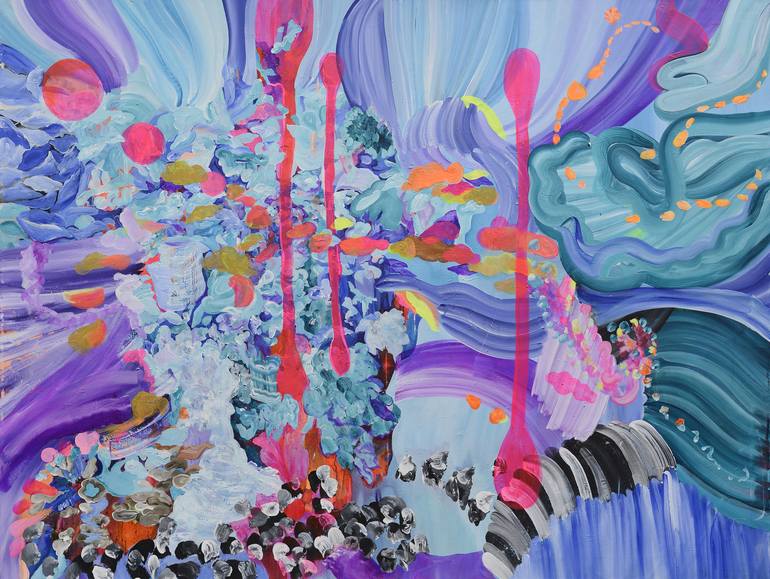





1605 Views
30
View In My Room
Open Edition Prints Available:
Select a Material
Canvas
Select a Size
16 x 12 in (€81)
Select a Canvas Wrap
Black Canvas
Add a Frame
No Frame
€81
1605 Views
30
Artist Recognition

Artist featured in a collection
ABOUT THE ARTWORK
DETAILS AND DIMENSIONS
SHIPPING AND RETURNS
Elements from nature are not shown as such, but as pure source of color-energy. Powerful vibratoes keep operating even at a distance. Fluorescent waves. Pure gesture. Vibrant and powerful. If you are cheerful and dynamic. this painting is for you! (.) The artwork will be sent in a secur...
Year Created:
2014
Subject:
Medium:
Print, Giclee on Canvas
Rarity:
Open Edition
Size:
16 W x 12 H x 1.25 D in
Ready to Hang:
Yes
Frame:
Not Framed
Canvas Wrap:
Black Canvas
Packaging:
Ships in a Box
Delivery Cost:
Calculated at checkout.
Delivery Time:
Typically 5-7 business days for domestic shipments, 10-14 business days for international shipments.
Returns:
All Open Edition prints are final sale items and ineligible for returns. Visit our help section for more information.
Handling:
Ships in a box. Art prints are packaged and shipped by our printing partner.
Ships From:
Printing facility in California.
Need more information?
Need more information?
TRANSPERSONAL ART AND ME. Numerous philosophies and traditions agree that there are three bodies co-existing: the physical, the subtle, and the causal. Generally, the first two are perceived. The physical body sees and experiences, while the subtle body makes connections between thoughts and emotions. The causal body is the spirit, and its perception depends on each individual's level of consciousness. There are artists who have dedicated themselves to various spiritual experiences and left their legacy in poetic representations, symbolic images, psychedelic images, or metaphysical messages. This places them within what is known as transpersonal art. According to philosopher Ken Wilber, this type of art is one that transforms both the person and the viewer. It expresses something that both the artist and the viewer are going to become even if they have not yet "achieved" it. Wilber uses theoretical concepts from expressionism and impressionism to explain how the perception of the internal and external works and the process of de-identification of the subjective, understanding how the passage from one state of consciousness to another is manifested artistically. Impressionism is based on external perception (a landscape), and expressionism on internal perception (an emotion). However, the first is given more value of reality, as the second is supposed to be "subjective." In contrast, for the transpersonal, both states of matter are possible to represent. In all cases of transpersonal art, the artist seeks to capture a spiritual reality. In transpersonal expressionism, the subjective and objective state (that is, impression and expression) are "very close" due to the degree of subtlety in perception that the artist has achieved in their daily work of expanding consciousness. That which is subjective in one state or phase becomes objective in the next. Their subjective world has now become objective for them. Having transcended the previous perception and de-identified from the previous world, a higher worldview can be seen, which embraces and contains previous information but adds new perceptions and a broader understanding of reality. Following Wilber's line of thinking, not many artists could touch the sensitive fibers of the causal body. There is no way - as Wilber points out in numerous writings - to represent transpersonal signs, mystical experiences, without having lived them before. The artist must train not only their eye but also their soul.
Artist Recognition

Artist featured by Saatchi Art in a collection
Why Saatchi Art?
Thousands of
5-Star Reviews
We deliver world-class customer service to all of our art buyers.
Global Selection of Original Art
Explore an unparalleled artwork selection from around the world.
Satisfaction Guaranteed
Our 14-day satisfaction guarantee allows you to buy with confidence.
Support Emerging Artists
We pay our artists more on every sale than other galleries.
